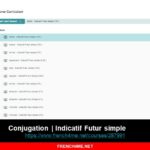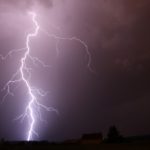L’info du jour : Volcanic Landscapes of the Massif Central
The Massif Central, covering about 15% of mainland France, is characterized by its rugged and volcanic landscape. This region offers unique geological features, such as the Chaîne des Puys, a…
French conjugation tip: The Negative Form with Reflexive Verbs in the Passé Composé
When using reflexive verbs in the Passé Composé, the negative form is placed around both the reflexive pronoun and the auxiliary verb. For example, “Je ne me suis pas réveillé…
French video course: 500 Phrases | Find the missing word | 001
500 Phrases | Find the missing word | 001 https://www.french4me.net/courses/1647184 To access this course and all the courses of French4me.net, you will need to purchase the Full Access Unlimited: https://www.french4me.net/p/lifetime-access-unlimited
5 sentences with “avoir rendez-vous”
J’ai rendez-vous chez le médecin demain matin à 9 heures. I have a doctor’s appointment tomorrow morning at 9 o’clock. Ils ont rendez-vous avec leur avocat pour discuter de leur…
French vocabulary tip: French Seasons Vocabulary
Understanding the seasons in French is important for discussing weather, holidays, and seasonal activities. The seasons include “le printemps” (spring), “l’été” (summer), “l’automne” (autumn), and “l’hiver” (winter). This vocabulary will…
French grammar tip: Understanding ‘Cependant’ for Contrasts
‘Cependant’ means ‘however’ or ‘nevertheless’ and is used to introduce a contrast. For example, ‘Il fait froid, cependant il sort en t-shirt’ (It is cold, however, he goes out in…
L’info du jour : Loire Valley’s Historic Significance
The Loire Valley is renowned for its historic villages, splendid châteaux, and agricultural richness. Often referred to as the ‘Garden of France’, the valley’s fertile lands reflect its critical role…
French conjugation tip: The Negative Form in the Conditionnel Passé
The Conditionnel Passé is used to express actions that would have occurred in the past under certain conditions. The negative form is formed by placing “ne…pas” around the auxiliary verb.…
French video course: 5 minutes per day | Urban French
5 minutes per day | Urban French https://www.french4me.net/courses/1710721 To access this course and all the courses of French4me.net, you will need to purchase the Full Access Unlimited: https://www.french4me.net/p/lifetime-access-unlimited
5 sentences with “avoir un chat dans la gorge”
Excusez-moi, j’ai un chat dans la gorge. Je vais prendre un verre d’eau. Excuse me, I have a frog in my throat. I’ll have a glass of water. Elle ne…
French vocabulary tip: French Bathroom Vocabulary
Knowing bathroom vocabulary is essential for describing your daily routines and personal care activities. Key terms include “la salle de bain” (bathroom), “la douche” (shower), “le lavabo” (sink), “la serviette”…
French grammar tip: The Use of ‘Parmi’ for Inclusion
‘Parmi’ means ‘among’ and is used to indicate that something or someone is part of a group. For example, ‘Elle est la meilleure parmi ses amies’ (She is the best…







